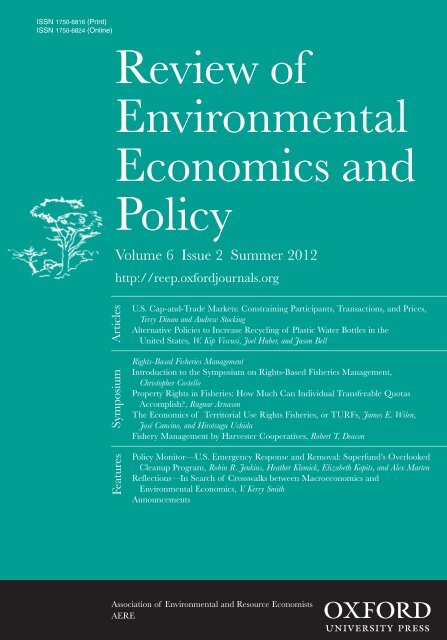Estimating the Economic Impacts of Climate Change Using Weather Observations
IF 6.6
3区 经济学
Q1 ECONOMICS
引用次数: 99
Abstract
This article reviews methods that use historical data on weather, climate, economic activity, and other variables to statistically measure the effect of climate on economic outcomes. This has been an active area of research for several decades, with many recent developments and discussions in the literature concerning the best way to estimate climate damages. The article first presents a conceptual framework for estimating the costs of climate change impacts. It then examines several approaches proposed in the literature that use historical weather data to econometrically estimate climate change impacts. These include cross section, linear and nonlinear panel methods, long differences, and partitioning variation. For each approach we describe the type of impacts (short-run versus long-run) estimated, the type of weather or climate variation used (e.g., cross-sectional, time-series, or a combination of the two using panel data), and the advantages and disadvantages of the approach. We conclude with a summary of our findings and priorities for future research.利用天气观测估计气候变化的经济影响
本文回顾了使用天气、气候、经济活动和其他变量的历史数据来统计测量气候对经济结果的影响的方法。几十年来,这一直是一个活跃的研究领域,最近在文献中有许多关于估计气候损害的最佳方法的发展和讨论。本文首先提出了估算气候变化影响成本的概念框架。然后研究了文献中提出的几种方法,这些方法使用历史天气数据来计量估计气候变化的影响。这些方法包括横截面、线性和非线性面板方法、长差和分区变化。对于每种方法,我们描述了估计的影响类型(短期与长期),所使用的天气或气候变化类型(例如,横断面,时间序列,或两者的组合使用面板数据),以及该方法的优点和缺点。最后,我们总结了我们的发现和未来研究的重点。
本文章由计算机程序翻译,如有差异,请以英文原文为准。
求助全文
约1分钟内获得全文
求助全文
来源期刊
CiteScore
10.80
自引率
0.00%
发文量
25
期刊介绍:
The Review of Environmental Economics and Policy fills the gap between traditional academic journals and the general interest press by providing a widely accessible yet scholarly source for the latest thinking on environmental economics and related policy. The Review publishes symposia, articles, and regular features that contribute to one or more of the following goals: •to identify and synthesize lessons learned from recent and ongoing environmental economics research; •to provide economic analysis of environmental policy issues; •to promote the sharing of ideas and perspectives among the various sub-fields of environmental economics;

 求助内容:
求助内容: 应助结果提醒方式:
应助结果提醒方式:


